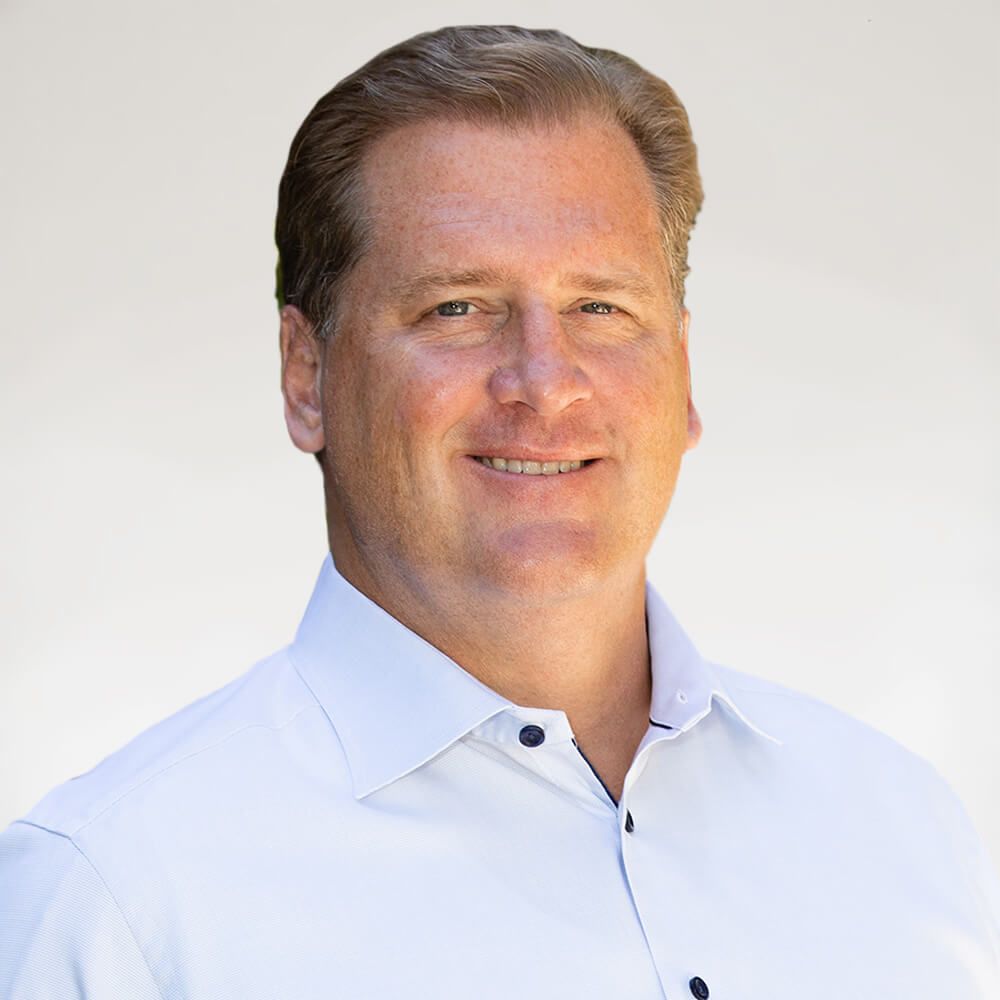RxSense CEO Rick Bates: Seeking growth and lasting success
In an interview with Chief Healthcare Executive, he talked about the SingleCare prescriptions savings service, the company’s work with pharmacy benefits programs, and plans for 2023.
Rick Bates, RxSense CEO and founder

Rick Bates says he’s very comfortable being aggressive, but he’s also looking down the road.
Bates is the CEO and founder of RxSense, a healthcare technology company offering solutions for pharmacy benefits management.
RxSense is the company behind SingleCare, the prescription savings service that works with large pharmacies, including CVS, Walgreens and Walmart. (You may have seen SingleCare’s commercials with actors Martin Sheen and Martin Short.)
Bates is relishing the company’s success, which has gained more recognition in the business world. RxSense was named on Forbes’ list of America’s Best Startup Employers in 2021 and on Fast Company’s compilation of America’s 10 most innovative health companies in 2020. The company was named among Modern Healthcare’s best places to work in 2022.
The company is aiming to bring more transparency to pharmacy prices and help consumers and companies save on drug costs, Bates said. While he’s eager to expand the reach of RxSense, Bates told Chief Healthcare Executive he’s also looking forward to doing more with the company’s existing base of clients. He said balancing growth with lasting success is a “conscious decision.”
“We're always aggressive when we go to market in our sales efforts. But the way I look at businesses, everything we do has to be sustainable,” Bates said.
“If it's the tortoise and the hare, I'd rather be the tortoise,” he continued. “Slow, steady, predictable. And we've had great growth.”
And in the race with the hare, the tortoise wins.
Bates spoke with Chief Healthcare Executive about SingleCare, the company’s plans for the year ahead, and some of the lessons he’s learned about leadership. (See excerpts of our conversation in this video. The story continues below the video.)
SingleCare’s emergence
RxSense, founded in 2015, now employs more than 300 workers, with offices in Boston, New York and West Palm Beach.
Bates was formerly the president and chief operating officer of Catalyst Health Solutions, which later became Catamaran. He also held leadership positions at health insurance companies.
Before establishing RxSense, Bates said he saw an opportunity to help change the way consumers shop for prescription drugs.
“I'd spent a lot of years in healthcare,” Bates said. “And I was very aware of the challenges, not the least of which was these legacy technology platforms that are antiquated, archaic, totally inflexible, and they actually limit your ability to innovate across the industry.”
“So that was one of the things that I had in mind … how do you really bring true price transparency to the market? And how do you help consumers understand that they should be shopping for prescription drugs the same way they do for other products?”
Those ideas led to SingleCare, a pharmacy savings card marketed directly to customers, allowing them to find savings on the drugs they need.
To date, more than 40 million Americans have used the SingleCare card, and the company is attracting about 7 million new customers annually, Bates said.
“More and more people in the market are being educated that you can shop for better prices for your prescription drugs,” Bates said. “And as that awareness increases, there's going to be more cash pay for prescriptions. And oftentimes, you can pay less with a SingleCare savings card than what your copay would be through your insurance carrier.”
More consumers are going to be opting to pay cash for prescriptions in the coming years, Bates predicted.
“This trend towards cash pay, at least for generic drugs, is going to accelerate over the next three to four years,” Bates said.
“We really do see a lot of growth that's going to occur in cash pay,” he added. “And I really think that it might still take another three or four years, but the market is definitely learning more about price transparency.”
Rick Bates, CEO and founder of RxSense (Photo courtesy of RxSense)

Technology solutions
Beyond SingleCare, RxSense works with companies and pharmacy benefits managers as they process and pay prescription drug claims.
The company’s cloud-based solution, RxAgile, enables companies to reduce waste and lower prescription drug costs, Bates said. The company touts its ease and simplicity for clients.
“We've made enormous investments in this over the years,” Bates said. “But the idea here was to bring modern technology to the PBM industry, and leverage that technology to enable consumers, employers, plan sponsors, PBM customers, and to enable them to deliver a better product in the marketplace. And our emphasis has always been around transparency, simplicity, automating as much of the entire experience as we can.”
RxSense has also developed a new analytics dashboard, RxIQ, that sheds more light on business operations and pharmacy claim data, with updated information by the hour.
RxIQ provides detailed reports on a plan’s performance and identifies any potential anomalies. Companies can gain insights on drug costs, financial performance, clinical outcomes and other key data, Bates said.
“RX IQ is really the tool that most of our customers leverage because it gives them visibility into their plan performance immediately,” Bates said. “We upload the data warehouse every 30 minutes, so it's near real time information. And it gives you the capability to manage your business across operations, clinical performance, financial performance, contract management, pricing.”
“It has really been the most valuable asset that we've created, because it's the headlights into all of our customers' business and it really gives them advantages in the marketplace and how they manage their own performance,” Bates said.
In 2023, the company will be offering RxIQ as a standalone product in the marketplace.
“That was a big strategic pivot for us to really see the opportunity to disconnect it from the underlying enterprise platform and offer it as a data analytics engine for potential partners in the marketplace, whether those are PBMs, or health plans, or eventually national account employers,” Bates said.
In the year ahead, RxSense is hoping to do more work with its base of clients.
“Because we don't make money on the cost of the drug, our incentive here is to really help them grow,” he said. “We want them to be more successful.”
Some companies own their own pharmacies, and Bates said he sees RxSense as offering solutions for their entire business. But he expects to do so incrementally, working with one piece of their business and eventually improving their performance, and eventually offering more solutions.
“I think we're going to find that we're going to be very successful upstream building partnerships with some larger players, even if we're just taking, you know, smaller pieces of their business to start,” Bates said.
Learning from mistakes
When asked for lessons he’s learned as a leader, Bates doesn’t point to a major achievement or company milestone.
Instead, he said, “I never realized how often I was wrong. That's been the biggest thing that I've learned.”
“Because you assume that the market is going to respond a certain way, or customers will respond a certain way,” he said. “But because of my own personal knowledge and history in this industry, I viewed it very differently. And what makes perfect sense to me, is not necessarily going to resonate with others.”
Bates described himself as having “an enormous appetite for risk,” but recognizing when a course correction is needed.
“It's finding a balance as you're trying to push a business forward, and having enough humility, so that you can look and realize when you've been wrong, when you should redirect that something, you just need to tweak something a little bit differently,” he said. “And don't fall on the hill.”
As one example, he cited the launch of RxIQ as a standalone product.
“I should have had RX IQ out in the marketplace as a standalone product 18 months ago, but I wanted to keep it with our platform, because I was so convinced of the power of both,” he said. “But the fact is RX IQ has an incredible value proposition on its own.”
Bates emphasized the value of building a capable team. He said he's aware of his "blind spots" and brought in people from other industries to provide different perspectives.
He also stressed the importance of giving team members the authority to run with key initiatives.
“I've pushed a tremendous amount of decision making down to my direct reports and enabling them, so things don't have to go through me. And they're incredibly capable people, they have great business instincts,” Bates said. “And I think that what you'd end up with is much better outcomes, when you allow people the autonomy to really make decisions and go get things done without overshadowing them, or, you know, holding them too close.”
Bates identified the company’s culture as one of the main ingredients for the success of RxSense.
“We've created this culture, where it's a place where people want to work,” he said. “There's incredible trust and collaboration. We bring new people into this company all the time with open arms. And we've really entrusted folks to use your best judgment and make decisions.”
Healthcare leaders: Prepare for a very different HIPAA security rule | Viewpoint
April 20th 2025The proposed changes to the HIPAA Security Rule are significant. Executives and boards need to prepare as the days of voluntary compliance end and a new era where leaders are held personally accountable emerges.